City Council
Court halts $354 million development subsidy
Austin City Manager: Dallas discard vs Austin retread
They’re off and running for council
Martinez’ Focus: Improving East Austin
Two-Term Incumbent Draws Strong
Support for Campaign Kickoff Event
by Rebecca LaFlure
© The Austin Bulldog 2012
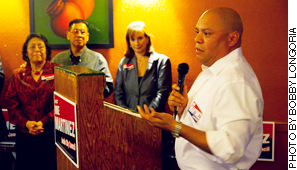 In front of an enthusiastic crowd Wednesday evening, City Council Member Mike Martinez described the side of Austin residents love to show outsiders: a lively music scene, quirky businesses, a booming high-tech industry, and beautiful parks and trails.
In front of an enthusiastic crowd Wednesday evening, City Council Member Mike Martinez described the side of Austin residents love to show outsiders: a lively music scene, quirky businesses, a booming high-tech industry, and beautiful parks and trails.
However, there is another side to Austin Martinez says people rarely talk about. The side where children go to sleep hungry, teenagers drop out of high school, and parents struggle to make ends meet on multiple minimum-wage jobs.
It’s this aspect of Austin that Martinez wants to focus on if elected to a third term to the Austin City Council, he said.
“We’re defined by our failures as much as our successes,” Martinez said. “It’s government’s job to do for those who cannot do for themselves.”
Martinez, 42, kicked off his re-election campaign at Nuevo Leon Restaurant on East Sixth Street Wednesday, saying more needs to be done to improve Austin’s east side.
Hundreds of Austin citizens—including fellow Council Members Bill Spelman, Kathie Tovo, Laura Morrison and Chris Riley—gathered to show their support as Martinez launched his re-election campaign.
Martinez did not mention his opponent, Laura Pressley, a business owner and member of Fluoride Free Austin, who announced Friday that she would challenge Martinez, the council’s only Latino, for the Place 2 spot.
Martinez said he moved to Austin in 1988 with $50 and a trumpet, hoping to make it as a musician. He eventually joined the Austin Fire Department, and worked at an East Austin fire station for 13 years. Martinez was elected president of the Austin Firefighters Association in 2003. In that position, he successfully fought to secure collective bargaining rights for firefighters, and a pay raise that made Austin firefighters among the highest paid in Texas.
Martinez was first elected to the City Council in 2006 on a platform of understanding the concerns of working-class minorities in East Austin. Martinez noted his efforts to ensure workers are paid on time and have rest breaks during the workday.
“This community has been historically underserved,” Martinez said of East Austin. “I am that champion.”
Martinez said, if elected to a third term, he would continue focusing on economic, transportation and equality issues. As chairman of the Capital Metro board, Martinez said he helped transform the agency over the past two years, noting the launch of the Red Line, a the Metrorail service that connects downtown Austin with the suburban areas including Wells Branch, Lakeline, and Leander.
He also plans to continue his support for Austin’s music community and work with musicians and neighborhood groups so that they coexist harmoniously.
Martinez alluded to his reputation as the council’s most outspoken member saying, “I don’t shy away from challenges. I take them head on. That’s my style.”
Gloria Aleman, an Austin resident and retired Travis County employee who was raised on the eastside, and Linda Ramirez, director of accounting at Rz Communications, were among those who came out to show their support for Martinez. (Andy Ramirez, CEO of Rz Communications, bundled campaign contributions for Martinez’s 2009 re-election campaign.)
“East Austin still has a lot to be done,” Aleman said. “His heart is in the right place, and I think he’s the only candidate who can make that happen. He cares about people.”
Ramirez said Martinez helped the nonprofit Bellas Artes Alliance raise money for the Pan Americana Festival—a free music festival scheduled for March 17 at the Emma S. Barrientos Mexican American Cultural Center. This is just one example of how Martinez has supported Austin’s Latino community, said Ramirez. Both she and Andy Ramirez are Bellas Artes Alliance board members.
Opponent has Latino support, too
Open Meetings Investigation a Year Old Today
County Attorney Says Investigation of Whether City
Council Violated Open Meetings Act Is Still Ongoing
by Ken Martin
© The Austin Bulldog 2012
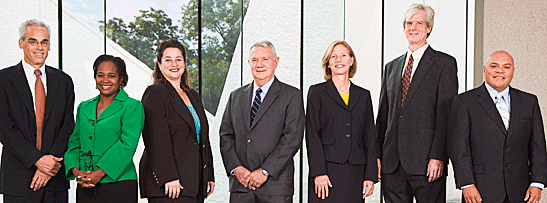
A year ago today, The Austin Bulldog published an investigative report (“Open Meetings, Closed Minds”) about the years-long practice in which the mayor and council members held regularly scheduled, private, round-robin meetings preceding each scheduled council meeting.
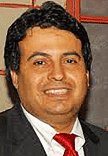 That same day, The Austin Bulldog reported that County Attorney David Escamilla announced that he was conducting an inquiry into a possible violation of the Texas Open Meetings Act, based on a complaint filed with his office by a citizen (later identified as civic activist Brian Rodgers, a key source in The Austin Bulldog’s investigation).
That same day, The Austin Bulldog reported that County Attorney David Escamilla announced that he was conducting an inquiry into a possible violation of the Texas Open Meetings Act, based on a complaint filed with his office by a citizen (later identified as civic activist Brian Rodgers, a key source in The Austin Bulldog’s investigation).
Now, one year later, the county attorney has not made a public statement about whether he thinks it was legal for the Austin City Council to regularly meet one-on-one and two-on-one in secret to discuss items on the city council’s upcoming agendas.
What has become of that investigation?
The Austin Bulldog asked County Attorney Escamilla.
“The investigation is still ongoing and we hope to complete it in the near future,” Escamilla said Tuesday. He declined to elaborate further.
That’s cold comfort for the seven members who were on the City Council when the story broke. With a statute of limitations of two years on the misdemeanor offenses they may have committed, they remain in legal limbo until Escamilla wraps up his investigation and determines how he will proceed.
 Former Council Member Randi Shade was on the City Council from June 2008 to June 2011. She regularly participated in those private meetings with the mayor and other council members. Shade is now a homemaker and she would like to find closure.
Former Council Member Randi Shade was on the City Council from June 2008 to June 2011. She regularly participated in those private meetings with the mayor and other council members. Shade is now a homemaker and she would like to find closure.
When informed of the county attorney’s statement, Shade told The Austin Bulldog, “He’s been saying the same thing for a year.”
Shade said she has been cooperating fully with the investigation and has submitted everything requested.
“They’ve gathered a ton of information. I haven’t heard anything (about the outcome of the investigation),” she said. “After a year, I don’t know how you define this as ‘speedy,’” as in speedy justice.
Mayor Lee Leffingwell and the other five council members who are also being investigated—Sheryl Cole, Mike Martinez, Laura Morrison, Chris Riley, and Bill Spelman—did not respond to an e-mail inviting comments for this story.
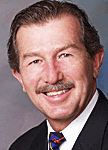 Bill Aleshire of Austin-based Riggs Aleshire & Ray PC, is a longtime volunteer attorney for the Freedom of Information Foundation of Texas media hotline. In addition, he is The Austin Bulldog’s attorney in two lawsuits against the city and council members concerning lack of responsiveness to requests filed under the Texas Public Information Act. He emphasized the importance of the issues involved in the county attorney’s investigation.
Bill Aleshire of Austin-based Riggs Aleshire & Ray PC, is a longtime volunteer attorney for the Freedom of Information Foundation of Texas media hotline. In addition, he is The Austin Bulldog’s attorney in two lawsuits against the city and council members concerning lack of responsiveness to requests filed under the Texas Public Information Act. He emphasized the importance of the issues involved in the county attorney’s investigation.
 One of the most respected attorneys in Texas on the subject of the Open Meetings Act is Joe Larsen, special counsel in the Houston office of the international law firm Sedgwick LLP. The nonprofit Freedom of Information Foundation of Texas in 2010 awarded Larsen its prestigious James Madison Award, named for the fourth president of the United States and author of the Bill of Rights.
One of the most respected attorneys in Texas on the subject of the Open Meetings Act is Joe Larsen, special counsel in the Houston office of the international law firm Sedgwick LLP. The nonprofit Freedom of Information Foundation of Texas in 2010 awarded Larsen its prestigious James Madison Award, named for the fourth president of the United States and author of the Bill of Rights.
“I think it’s important that the investigation be completed as soon as reasonably possible so as to make a public record of the findings,” Larsen said, adding, “Far be it from me to say what resources are available” for the investigation.
“If a violation of the Texas Open Meetings Act is found and publicized, it will act as a deterrent for all governmental bodies that might consider doing something similar,” he said.
Larsen noted that the city council has stopped holding the private meetings and said, “However bad this practice was, one should really commend the governmental body for doing the right thing.”
Council members still at risk of prosecution
It’s Pressley vs. Martinez
First-time Council Candidate to Oppose
by Ken Martin
© The Austin Bulldog 2012
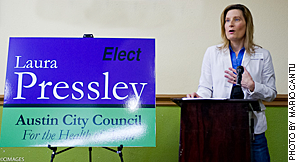 Laura Pressley kicked off her campaign December 10 vowing not to let the so-called “gentlemen’s agreement” that resulted in having one African American and one Latino on the council stop her from opposing a minority member of the City Council.
Laura Pressley kicked off her campaign December 10 vowing not to let the so-called “gentlemen’s agreement” that resulted in having one African American and one Latino on the council stop her from opposing a minority member of the City Council.
At Friday’s press conference she proved it. She announced she is targeting incumbent Mike Martinez, who was first elected in 2006 and is now seeking a third term.
Martinez did not return a request for comment left on his council office recorder. His campaign website provides no telephone number.
Martinez has raised $70,460 for his re-election bid and had $64,654 in the bank as of December 31. He has campaign kickoff fundraiser scheduled for Wednesday at Nuevo Leon Mexican Restaurant, 1501 E. Sixth St., starting at 5:30pm.
Pressley raised $3,100 and had $2,332 in the bank through December 31. She has not yet hired a consultant or campaign manager.
Pressley told The Austin Bulldog she had been advised she needed to raise $200,000 to $250,000 for the campaign. “That’s what we’re going to do,” she said. “We will easily have $40,000 to $50,000 by March.”
Unlike many of the winning candidates in recent council elections, she does not plan to loan her campaign money. “If people don’t support us we will not win,” Pressley said, adding, “I have a lot of donors waiting for us to declare against Martinez.”
In her press conference Pressley said there were concerns about her going against the gentlemen’s agreement from the 1970s but, “We’re not in the seventies anymore. Designating one seat (for a Latino) is a serious limitation.
“There should be two or three Latino seats if we get real geographic representation in this city. We really support the 10-1 plan.” She was referring to the proposal initiated by Austinites for Geographic Representation, a grass-roots citizens initiative to get on the ballot a proposition to establish a nonpartisan Independent Citizen Redistricting Commission that would draw 10 council districts that the Austin City Council would have no choice but to adopt. The group’s plan calls for only the mayor to continue being elected at-large.
“Over the years Mike Martinez has done very little to help the Hispanic community,” Pressley said. “We need a change at City Hall—regardless of skin color—and directly do what’s important for East Austin and all of Austin.”
About a dozen attended the press conference, many of which were Latinos. All said they’re fed up with Martinez, including long-time East Austin activists Marcelo Tafoya, Gavino Fernandez, Jose Quintero, Fidel Acevedo, and a younger Danny Perez. All professed strong support for Pressley and no concern about the fact that her victory would displace the council’s only Latino.
Interviews with some of them,before the press conferenceat the YMCA Learning Center at 2121 E. Sixth Street, revealed a deep resentment over what they perceive as Martinez’ lack of attention to problems.
“It doesn’t matter,” Quintero said of the idea a white woman might beat Martinez. “He’s not helping us.”
Tafoya agreed, saying, “We decided a while back to get rid of ‘Evil Knievel.’ We decided that the gentlemen’s agreement is BS. It hasn’t served the minority community at all.”
Tafoya, a former district director for District 12 of the League of United Latin American Citizens (LULAC), said the minority members of the council were “never elected by us, they never represented us, and never even considered us. They make token gestures and the council votes against us. We’re sick and tired of it.”
Pressley said she met with Latino community members in December and kept it quiet. “We would not do this without Hispanic support.”
Critical of council decisions, offers ideas
Bill Spelman’s Re-election Campaign
Kickoff Draws an Appreciative Crowd
University of Texas Professor, Council Member
Wants to Keep Austin Weird, and Explains Why
by Ken Martin
© The Austin Bulldog 2012
 Council Member Bill Spelman launched his campaign for a third term on the Austin City Council at Scholz Garten Tuesday evening to boost his campaign war chest beyond the $31,600 he had raised through December 31, according to the contribution report filed Tuesday.
Council Member Bill Spelman launched his campaign for a third term on the Austin City Council at Scholz Garten Tuesday evening to boost his campaign war chest beyond the $31,600 he had raised through December 31, according to the contribution report filed Tuesday.
Jim Wick, Spelman’s campaign manager, said in an e-mail the campaign would prefer not to give a figure of how much was raised at the event, “...but we were happy with the depth and breadth of the contributions (and contributors) we received last night and in the days since December 31.” He said 125 people attended. The audience was much smaller when Spelman spoke, as some supporters came by for brief visits and left to meet other commitments.
Spelman said he recently noted the camaraderie of Travis County Democrats at a recent annual dinner and attributed that spirit of cohesiveness to having a common enemy, like Governor Rick Perry.
Although elections to fill seats on the Austin City Council are nonpartisan, Spelman said the citizens of Austin need a common enemy too. He reeled off a list of the things that make Austin unique, and said, “I’m going to argue that our real enemy, our common enemy, is all the things that threaten that.”
“Every time someone tells me, ‘Austin is the only city in the country that doesn’t have this or doesn’t do that,’ a small part of me is just a little bit giddy. So long as we’re smart enough about it, keeping Austin weird is not just a semi-cool slogan, it’s a real means of survival in a brutal, difficult, and changing world.”
In listing some of the things accomplished in his current term, Spelman mentioned:
• Launching, with Mayor Pro Tem Sheryl Cole, the Neighborhood Match Program that “gives neighborhoods a chance to decide for themselves what public works they need.”
• Pushing the Austin Water Utility to move forward as fast as possible on its water reclamation program. “In an unprecedented drought—one that climatologists tell us is going to last in some form or fashion for the rest of our lifetimes—it only makes sense to use water twice, not just once.”
• Enacting payday lending restrictions. “Congress has not yet dealt with the dramatic increase in payday lending, but 400 percent interest-rate charges pose an imminent threat to the well-being of thousands of Austinites, almost all of them of modest means. The Lege did not act. We did.”
• Regulating pregnancy counseling centers. Women “need to know there are significant limitations to the kind of help offered in the crisis pregnancy center. The State Legislature doesn't want to tell you. We did.”
• Helping Foundation Communities to open volunteer tax preparation centers that “over the past few years has put $29 million of tax refunds into the hands of poor and moderate-income Austinites.”
“All of this is really weird,” Spelman said. “Cities pick up trash, they sell potable water, and they answer 911 calls. They do not typically give neighborhoods choices, use water twice, regulate lenders and pregnancy centers, or help people save money. Some of them do. But that's what our changing world is calling for and that's what we need to do.
“Our continued ability to adapt, working within our Austin DNA, is critical to our surviving and thriving as a city in coming years. Weird isn't just a slogan. It's a way of life.”
Running unopposed at the moment
Background Investigation: Sheryl Cole
Background Investigation: Sheryl Cole
Here’s What the Public Records Say About
the Council Member Running for Reelection
by Rebecca LaFlure
© The Austin Bulldog 2012
 In the nearly six years since Sheryl Cole was elected as the first African-American woman on the Austin City Council, she has championed a project aimed at spurring redevelopment along Waller Creek, advocated for increased housing options for low-income families, and voted in favor of the controversial $750,000 settlement in the police shooting death of teenager Nathaniel Sanders II.
In the nearly six years since Sheryl Cole was elected as the first African-American woman on the Austin City Council, she has championed a project aimed at spurring redevelopment along Waller Creek, advocated for increased housing options for low-income families, and voted in favor of the controversial $750,000 settlement in the police shooting death of teenager Nathaniel Sanders II.
Now, a month after Cole launched her campaign for a third term, The Austin Bulldog searched beyond the decisions made at council meetings and dug into Cole’s professional, political, and personal background.
We used an organized plan to find, copy, and publish public documents—including business, real estate, voting, criminal and court records—so citizens can form their own conclusions about their elected officials in the months leading to the May 2012 election.
We invite readers to study the documents and let us know if there are any important details we overlooked, or areas that warrant further investigation.
Newsletter
Keep up with the best investigative reporting in Austin.
© The Austin Bulldog. All rights reserved.
2028 E. Ben White Blvd. #240-6115 Austin TX 78741







